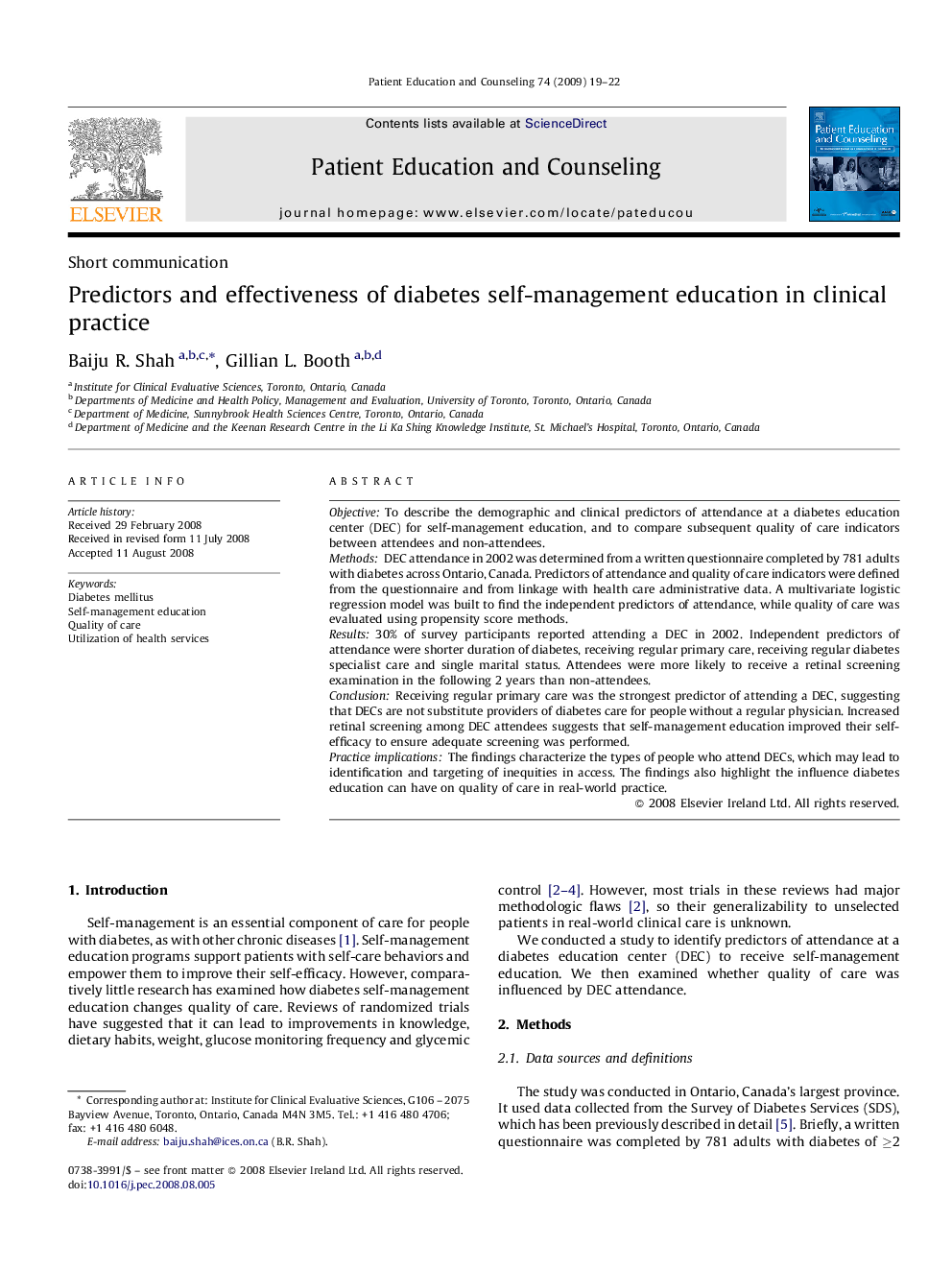| Article ID | Journal | Published Year | Pages | File Type |
|---|---|---|---|---|
| 3815245 | Patient Education and Counseling | 2009 | 4 Pages |
ObjectiveTo describe the demographic and clinical predictors of attendance at a diabetes education center (DEC) for self-management education, and to compare subsequent quality of care indicators between attendees and non-attendees.MethodsDEC attendance in 2002 was determined from a written questionnaire completed by 781 adults with diabetes across Ontario, Canada. Predictors of attendance and quality of care indicators were defined from the questionnaire and from linkage with health care administrative data. A multivariate logistic regression model was built to find the independent predictors of attendance, while quality of care was evaluated using propensity score methods.Results30% of survey participants reported attending a DEC in 2002. Independent predictors of attendance were shorter duration of diabetes, receiving regular primary care, receiving regular diabetes specialist care and single marital status. Attendees were more likely to receive a retinal screening examination in the following 2 years than non-attendees.ConclusionReceiving regular primary care was the strongest predictor of attending a DEC, suggesting that DECs are not substitute providers of diabetes care for people without a regular physician. Increased retinal screening among DEC attendees suggests that self-management education improved their self-efficacy to ensure adequate screening was performed.Practice implicationsThe findings characterize the types of people who attend DECs, which may lead to identification and targeting of inequities in access. The findings also highlight the influence diabetes education can have on quality of care in real-world practice.
